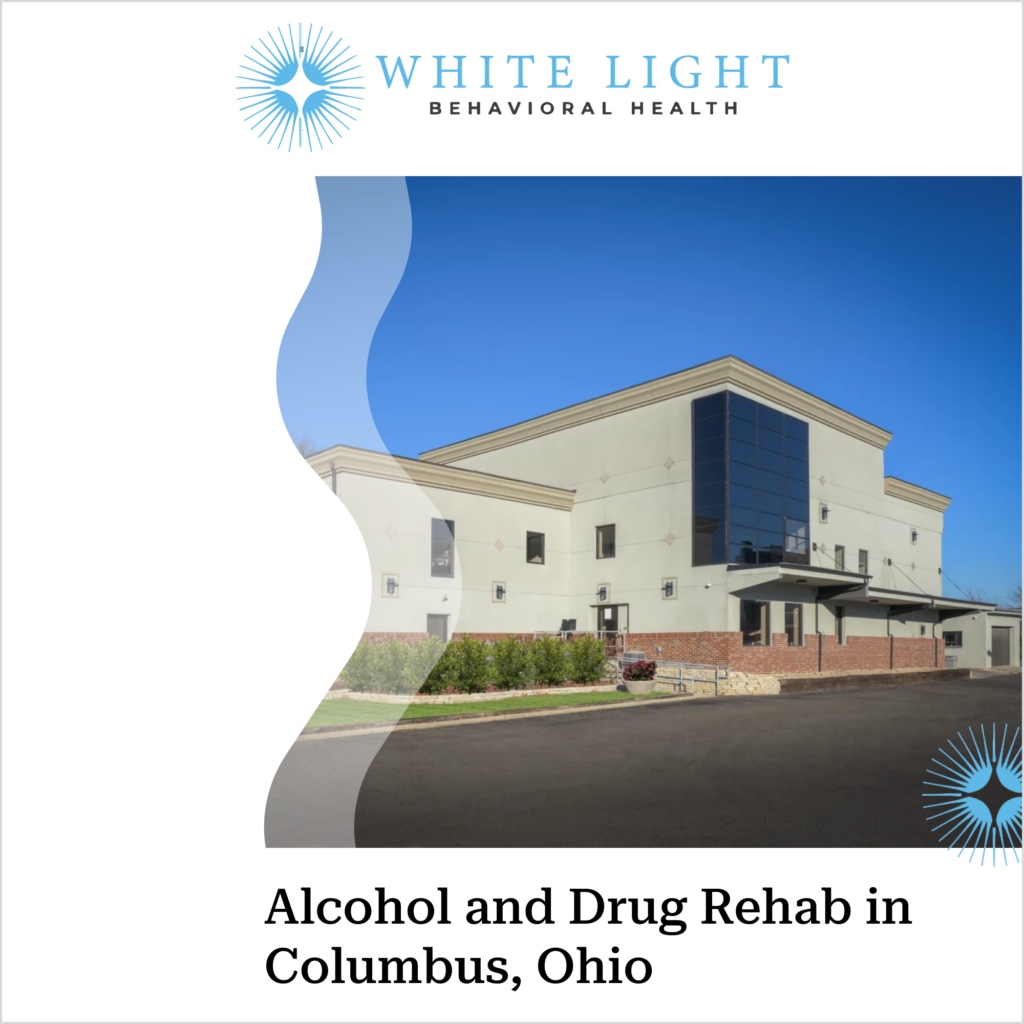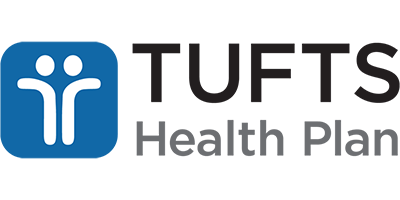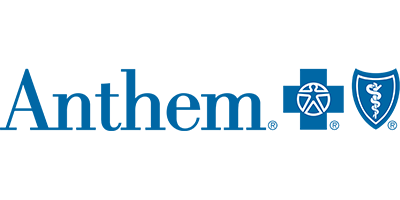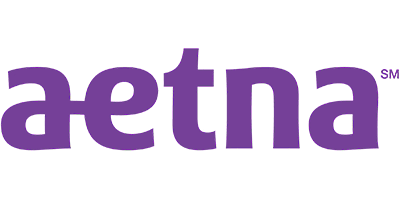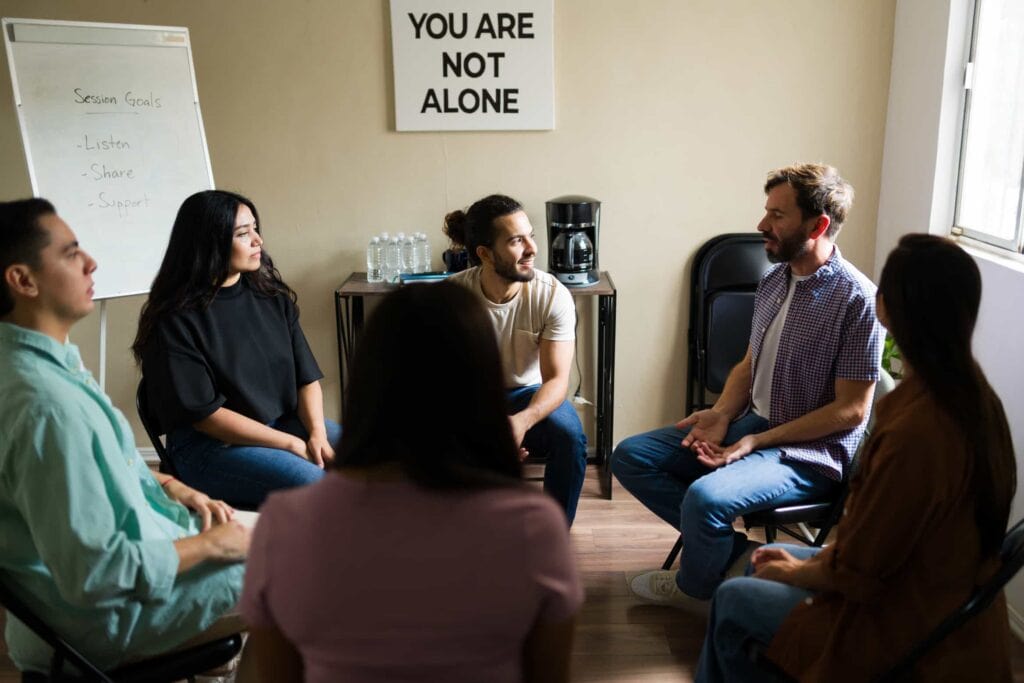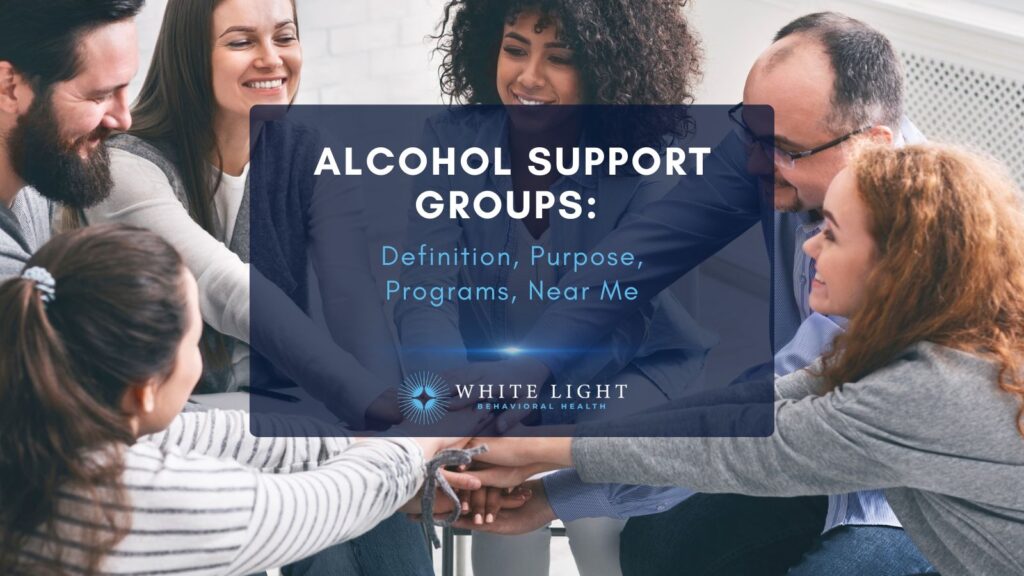Building a Strong Support System for Loved Ones with Alcoholism

Alcohol addiction doesn’t just affect the person drinking; it deeply impacts the family and loved ones around them. In Columbus, Ohio, many families and partners experience emotional burnout, financial strain, and constant worry as they try to support someone battling alcoholism. A strong support system makes a difference.
Local resources like counseling centers, crisis lines, and family support programs offer practical tools to cope with relapses, set healthy boundaries, and stay emotionally grounded. Healing is possible when both the individual and their loved ones receive the care and guidance they need.
Why Is A Strong Support System For Alcoholics Necessary?

A strong support system for alcoholics is necessary because of the physical, emotional, and psychological challenges that come with recovery. Without support, individuals dealing with alcohol addiction are more likely to relapse, struggle with isolation, and avoid seeking help.
Family and friends offer stability, accountability, and encouragement, which are critical during detox, treatment, and aftercare. In Columbus, where alcohol misuse remains a pressing concern, the presence of consistent emotional and practical support determines whether someone completes recovery or returns to drinking.
According to the Franklin County Alcohol, Drug and Mental Health Board (ADAMH), recovery outcomes improve when loved ones are involved in counselling, education, and structured support.
Support systems also help loved ones feel empowered rather than helpless. Instead of enabling addiction, they learn to reinforce healthy boundaries and recognise when to seek professional help, both for the alcoholic and themselves.
Did you know most health insurance plans cover substance use disorder treatment? Check your coverage online now.
How Does Alcoholism Affect Families and Relationships? listing
Alcoholism affects families and relationships through emotional instability, financial stress, and long-term psychological strain. It increases the risk of anxiety, depression, co-dependency, and burnout among partners, children, and caregivers, making it harder to maintain healthy boundaries and daily routines.
Alcoholism affects families and relationships in the following ways:
- Emotional and Psychological Strain: Constant worry, broken trust, and mood swings can cause deep emotional distress in spouses, children, and parents. Over time, these unresolved tensions lead to anxiety, depression, or even post-traumatic stress in loved ones.
- Financial Burden: Missed work, legal issues, and the cost of alcohol or treatment deplete savings and increase debt.
More Resources on Addiction:
This financial instability adds to relationship conflict and long-term insecurity.
- Increased Risk of Co-Dependency: Family members develop unhealthy patterns like enabling or excessive caretaking, losing sight of their well-being in the process. These behaviours create cycles of guilt, over-involvement, and emotional exhaustion.
- Signs of Caregiver Burnout: Loved ones feel overwhelmed, irritable, and physically drained from constantly managing crises.
Common symptoms include sleep disturbances, social withdrawal, and feelings of hopelessness—warning signs that help is needed.
What Alcohol Support Groups Are Available for Families in Columbus, Ohio?
The support groups available for families in Columbus, Ohio, include Al-Anon Family Groups, Adult Children of Alcoholics (ACoA), and local faith-based or secular peer support circles. These alcohol support groups offer weekly meetings across Franklin County where loved ones share experiences, learn coping strategies, and access ongoing emotional support.

The support groups available for families in Columbus, Ohio are:
- Al-Anon Family Groups: Al-Anon offers a network of meetings across Franklin County, providing a supportive environment for families and friends of alcoholics to share experiences and find strength. Meetings are held at various locations, including Trinity Episcopal Church in downtown Columbus and Crestview Presbyterian Church in North Columbus.
- Adult Children of Alcoholics (ACoA): ACoA meetings cater to individuals who grew up in dysfunctional households affected by alcoholism.
These meetings provide a safe space for participants to address past traumas and develop healthier relationships.
- Celebrate Recovery: Celebrate Recovery is a faith-based support group that addresses a variety of issues, including codependency and the impact of a loved one’s alcoholism. Meetings are hosted by various churches throughout Columbus, offering a Christ-centered approach to healing.
- SMART Recovery Family & Friends: This secular program provides tools and support for individuals affected by a loved one’s addiction, focusing on self-empowerment and coping strategies.
Meetings are available both online and in person.
- Families Anonymous: Families Anonymous offers a 12-step program for relatives and friends of individuals with substance use disorders, including alcohol addiction. Meetings provide a confidential environment to share experiences and support each other.
Where Can You Get Professional Help for Family Members of Alcoholics?
You can get professional help for family members of alcoholics through licensed counsellors, clinical social workers, and family therapists across Columbus.
White Light Behavioral Health and OhioHealth offer therapy services that address the emotional strain of loving someone with alcohol use disorder, including sessions specifically for spouses, parents, or children.
For households with limited income, options like sliding-scale or grant-funded counselling make mental health support more accessible. These services don’t just focus on the alcoholic—they help you regain emotional balance, set healthy boundaries, and rebuild relationships damaged by addiction.
What Local Programmes Provide Education About Alcoholism? paragraph
The local programmes that provide education about alcoholism include family education sessions from OhioHealth and public seminars organised by the Franklin County ADAMH Board. These programmes help families understand how addiction works, how to support recovery, and how to avoid enabling behaviours.
OhioHealth’s “Family Recovery Education” sessions cover everything from the science of addiction to communication tools for loved ones, while Local nonprofits like CompDrug run free addiction education programmes for parents and spouses, both in-person and online, across Columbus.
With this knowledge, families are better equipped to make informed decisions, establish boundaries, and participate in a lasting recovery.
How Can You Set Boundaries and Protect Your Own Well-Being? listing
You can set boundaries and protect your well-being by practising emotional detachment, maintaining a consistent routine, and seeking outside support. Columbus offers boundary-setting workshops through organisations where families learn how to care for their loved ones without enabling harmful behaviour.
You can set boundaries and protect your well-being through the following approaches:
Contact us today to schedule an initial assessment or to learn more about our services. Whether you are seeking intensive outpatient care or simply need guidance on your mental health journey, we are here to help.
What Should You Do During a Crisis or Relapse?
During a crisis or relapse, remain calm, ensure everyone’s immediate safety, and avoid confrontation that might escalate the situation. Call a local crisis line or contact a treatment provider like White Light Behavioral Health for guidance on next steps and relapse prevention, especially if your loved one is at risk of harming themselves or others.
During a crisis or relapse, you should take the following steps:
- Stay Calm and Ensure Safety: Keep your voice steady and remove any objects that could lead to harm. Emotional escalation increases risk, so your priority is to create a secure environment for everyone involved.
- Avoid Confrontation: Don’t argue, accuse, or force immediate decisions.
Instead, focus on de-escalating the moment and postponing serious conversations until your loved one is sober and stable.
- Call for Professional Help: Contact a local crisis service, such as the Franklin County Crisis Line, or reach out to White Light Behavioral Health. They guide you through emergency steps, including admission for detox or in-home intervention.
Where to Turn for Immediate Help in Columbus, Ohio
You can turn to the Franklin County Crisis Line and White Light Behavioral Health for immediate help in Columbus, Ohio.
The Franklin County Crisis Line, available 24/7 at (614) 276-CARE, provides urgent support by connecting you with trained professionals who can assess your situation and recommend next steps.
However, White Light Behavioral Health offers same-day evaluations for detox and residential care, ensuring rapid entry into treatment when time is critical..
These local services ensure that in moments of fear or uncertainty, you’re not navigating it alone—help is only a call or short drive away.
Share This Post
